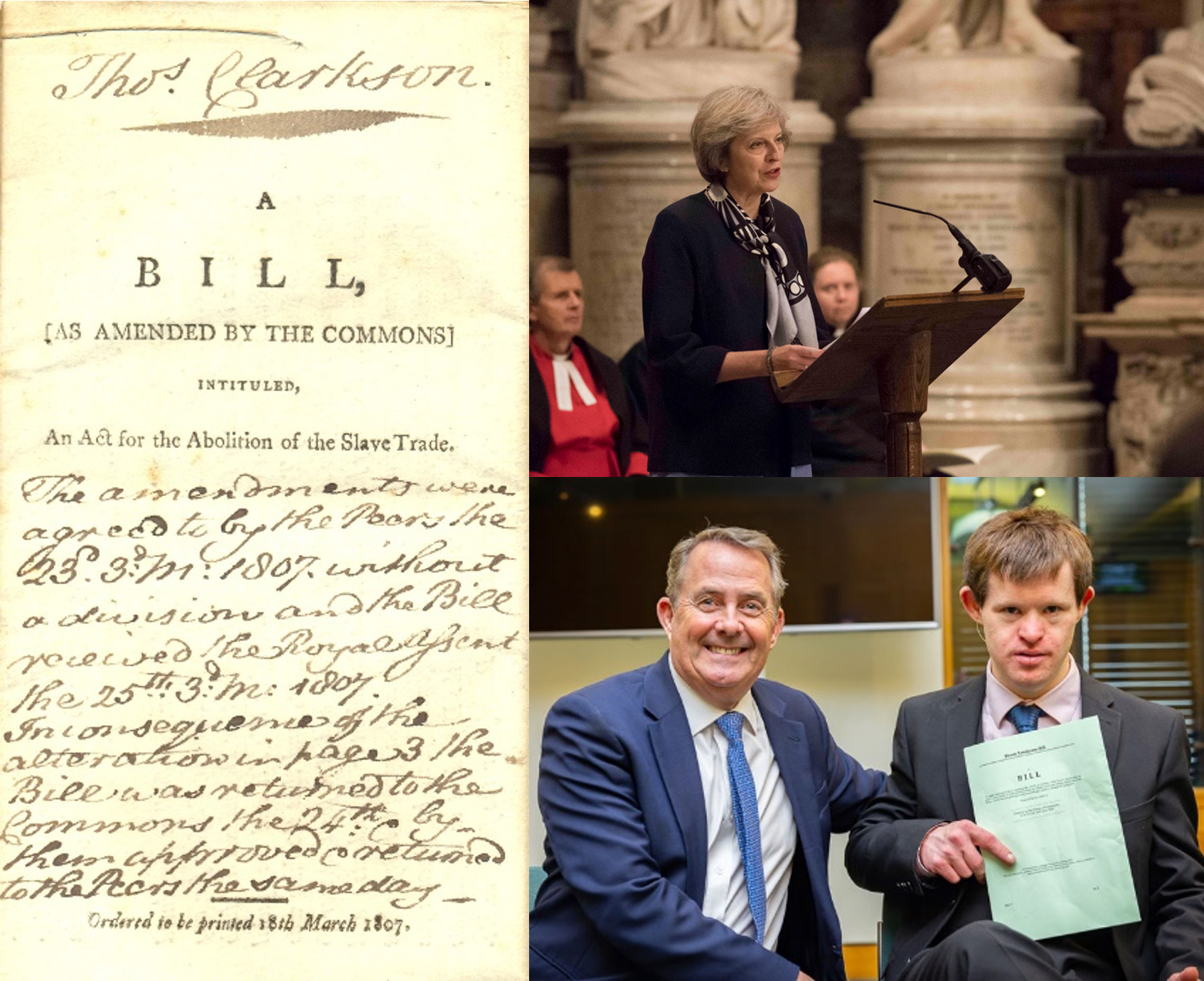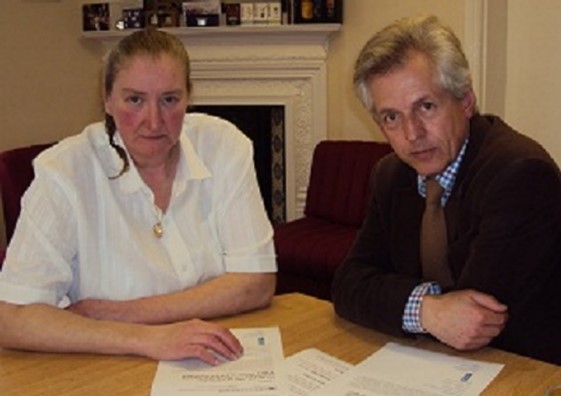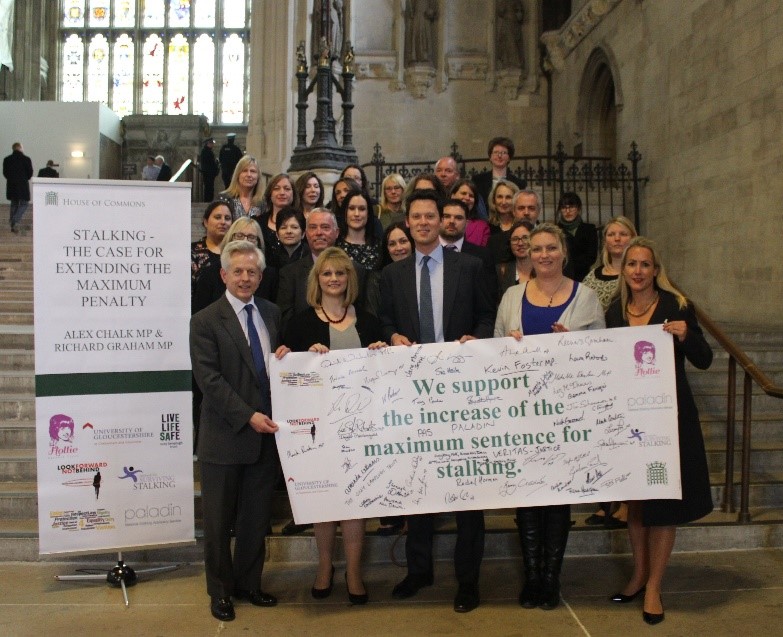Backbench MPs (i.e those who aren’t Ministers) have long played a role in introducing laws on important issues. It’s not always a quick process: William Wilberforce began his campaign to abolish slavery in the 1790s and the Bill finally succeeded on 23 May 1806.
But the perseverance is often for the best for the country: Philip Dunne and the Duke of Wellington Amendment to the Environment Act on water quality (which I introduced on the Bill Committee), and sometimes Private Members Bills change things for specific issues like Liam Fox’s on Down Syndrome or Henry Smith’s on big game trophies.
Sometimes amendments change the dial on new legislation like Theresa May’s Modern Slavery Act which took four years.

From the ancient to the modern: William Wilberforce successfully campaigned to abolish slavery in 1806 while Theresa May introduced it's modern version in 2015. Liam Fox succeeds in changing the law on down syndrome in 2023
Changing the law as an MP is rarely an individual act and all the examples above needed cross party work. Often the motivation starts with an individual constituency story. That’s been the case for me too.
Driving while unlicensed or uninsured
In 2013 I began a campaign to increase the sentence for causing death by driving while unlicensed and uninsured after my constituent, Paul Stock, was tragically killed by such a driver.
At the time Paul’s killer could only be sentenced to a maximum of 2 years in prison. When his widow, Mandy, wrote to me about this it was clear that such a sentence didn’t at all reflect enough the pain caused to victim’s family. With the then 50% ‘discount’ the a man’s life was penalised by a year in prison.

With Mandy Stock whose husband Paul inspired my campaign to change sentencing for those who drive without a licence or insurance
I raised this with then Prime Minister David Cameron who agreed to arrange a meeting with Mandy and then Justice Minister Chris Grayling. A few other MPs also picked up on this issue where their constituents had been similarly affected and supported by campaign.
In 2014 the government confirmed that it would increase the maximum sentence for causing death by driving while unlicensed, disqualified or uninsured to 10 years and increase sentences to a maximum of four years for causing serious injury. The Justice Minister also agreed to review all driving offences. Later the automatic discount was removed for manslaughter.
Stalking
Equally in 2015, I began looking into stalking after the sad story of a Gloucester GP living in Cheltenham who was stalked for 8 years. Our Judge Jamie Tabor in sentencing her stalker, Raymond Knight, said that if he could have sentenced him to longer, he would have. Knight had been sentenced for stalking Dr Eleanor Aston, a Gloucester GP who lived in Cheltenham, for 8 years.
He invaded every part of her life: leaving messages at her work, on her phone and around her car, he visited her daughter’s nursery and cut off her gas and water supplies. He was suspected of burning down half her house.

With Alex Chalk KC MP, Dr Eleanor Aston and others who supported the campaign to give judges more flexibility when sentencing stalkers
So with Alex Chalk (my neighbouring and her MP) we decided to pursue a change in the law to make sentencing more flexible.
Together we launched a piece of research to find the breadth and scale of stalking to illustrate why a change in law was needed. We were both absolutely shocked at the stories we heard including that of hairdresser Katie Price, who eventually had to leave Gloucester to avoid her stalker.
In 2016, after a change in government, Alex laid a 10 Minute Rule Bill to push the case again. Shortly after we were supported by Labour Baroness Jan Royall to amend the Policing and Crimes Bill in the House of Lords.
In 2017, the government accepted the recommendations of our earlier report and amended the law to give judges exactly the flexibility in sentencing stalking cases that we sought. They also doubled the maximum sentence from seven to fourteen years in cases of religiously or racially aggravated harassment and later introduced the Stalking Protection Orders, which police chiefs and voluntary groups say make a real difference.
Spiking
More recently, again after a constituent case, I’ve tried to change the law on spiking.
At the end of 2021, Rosie Farmer wrote to me about her daughter, Maisie, who had been spiked on a nightout in at university. Maisie isn’t known for getting drunk while out. But after being spiked she “would have done anything for anyone.”

With constituents Rosie and Maisie Farmer talking about Rosie’s spiking incident at university to GB News
After talking with Maisie and Rosie and doing more research I found the issue is more widespread than is widely known: cases all over the country, mostly female victims, including other MPs and their children – and then the case of Reynhard Sinaga who spiked hundreds of male victims in Manchester.
In January 2022 I laid a 10 Minute Rule Bill seeking a new law to make sure all elements of spiking were illegal, including for ‘fun’. Shortly after I receive an assurance from the then Policing Minister in the Chamber that the Home Office would look at this and report back positively by the autumn. In the media the then Home Secretary Priti Patel indicated she’d encouraged officials to look at this.
Following a change of government and with new Minister in post the Home Office decided that a new law was not required and that existing laws were sufficient.
In January this year I hosted a Westminster Hall Debate supported by the former Home Secretary, former Safeguarding Minister, and many other MPs during which we acknowledged the government’s response but called for an amendment to existing laws (most of which date from 1861) to reflect modern attitudes and actions.
I summarised by saying that: "The offence is known to the public as spiking, and that is what the law should reflect. Although the detail of a 162-year-old Act may be fine, the law can also play a vital role in behavioural change. An amendment reflecting modern language would do just that, making the law unambiguous, especially for a younger generation, who are largely the victims and sometimes the perpetrators of spiking offences."
In replying Home Office Minister Tom Tugendhat said: “I will listen carefully to his point and his suggestion that a so-called umbrella amendment may be possible.I will take that away and come back to him … because no one wants a gap in the law. No one wants to see crimes going unpunished and no one wants to see victims unable to achieve the level of protection that is absolutely essential.”

With MPs including former Home Secretary Priti Patel, Safeguarding Minister Rachel Maclean and anti-spiking campaigners after my Westminster Hall Debate
The proposal is widely supported in and out of Parliament with the next stage being to put forward another 10 Minute Rule Bill hopefully before the summer.
If we can succeed in amending the law it will be a great shared success between many colleagues from most political parties and several ministers or ex ministers and Dawn Dines of Stamp Out Spiking on behalf of thousands of constituents who have been victims.
So every MP finds his or her causes partly through research and/or constituents. It’s always a worthwhile challenge to make change happen..
Very few if any of these make the media at all, let alone their headlines. But they are, like Select Committees holding government to account, the invisible work that MPs do - and perhaps once every decade it’s worth me making patient readers aware of this side of our work for you.
Let me know your thoughts at [email protected]
